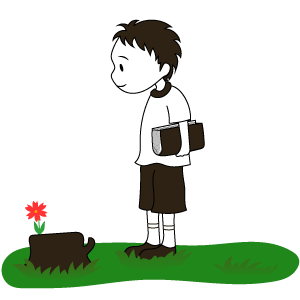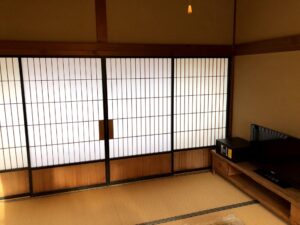When I look at Twitter and other sites, I sometimes see people tweeting interesting things that make me think they are geniuses.
I try to imitate them out of curiosity, but I can’t seem to do it. Even if I try to imitate their style, I can’t help but feel that I’m losing my temper and looking dull. Or, they are somewhat snobbish.
On the other hand, I don’t have the insight or knowledge to tweet about political, economic, or social topics head-on, so I don’t dare tweet about them. Besides, I would probably be horrified if someone refuted me.
Back in the day, the number of characters in a tweet was limited, and at that time, the world was somewhat of a blink-and-you’ll-miss-it kind of place, rather than a writing ability. Those who wanted to read well were encouraged to go to blogs.
Nowadays, blogs themselves are going downhill, and on the other hand, as the character limit for tweets increases, the tweets themselves are becoming somewhat similar to blogs, with more thought-provoking content. However, it is also becoming more difficult to read.
Still, it is the copywriters and other former advertising industry people who understand the essence of Twitter and make the most of its fun factor. The most representative of such people are Shigesato Itoi and Yasunobu Tanaka.
When I read their tweets, sometimes I laugh, sometimes I am impressed, and sometimes I think that I cannot imitate them.
It is not an exaggeration or anything, but sometimes I even think that this might be a new form of literature and art. And I feel like it would be a shame for it to disappear.
Thinking about it again, perhaps that is where the tool of Twitter and copywriting go hand in hand. Short sentences attract people, sometimes amuse them, and sometimes spread the word.
On the other hand, a novelist’s tweets are somewhat uninteresting. They are either direct advertising, serious, weird soliloquies, or all of the above. After all, novelists only compete with a certain amount of writing, which is probably fundamentally incompatible with tweeting.
Perhaps one of the reasons for this is a strong awareness of the need to preserve the written word. It may be a misnomer to say it this way, but the better a tweeter is, the less he or she is concerned about his or her own tweets, and in a sense, he or she is prepared for the fact that his or her tweets will disappear like bubbles, and at the same time, enjoys it.
In that sense, novelists may be stingy with their writing. This may be a true reflection of the advertising industry, the literary world, and the real flow of money.
However, if the character limit on Twitter increases in the future, novelists may have a place. Even so, if Twitter and advertising are compatible, Twitter is still the best place for novelists to advertise their works. A glimpse into the world of novels. It would be great if an author who tweets like this makes people want to read his/her work.
Having said that, I don’t think I’ll get any better at tweeting, but I’ll make an effort to get better at it at least.
See you later.












